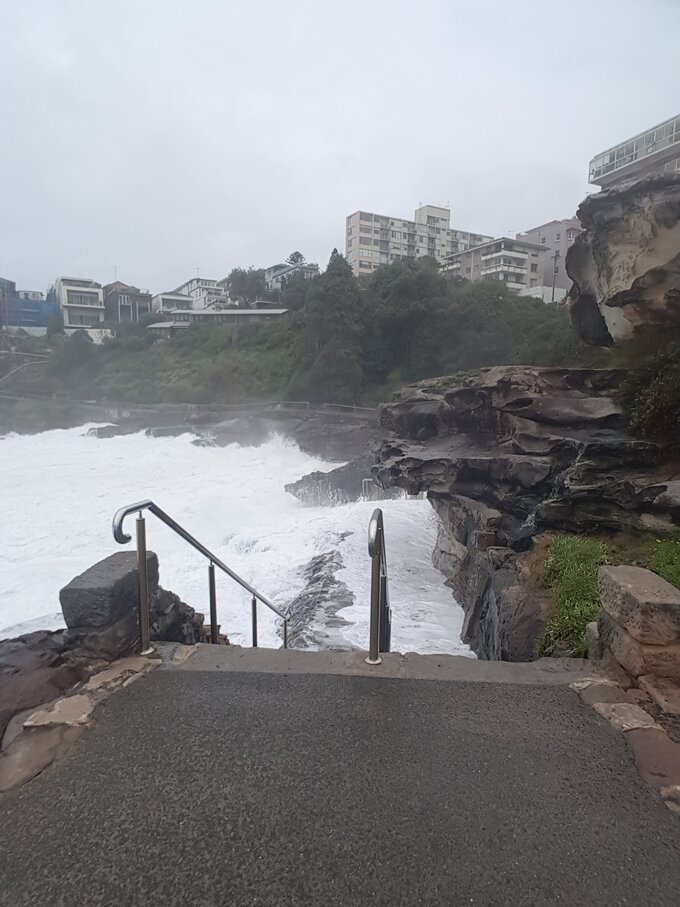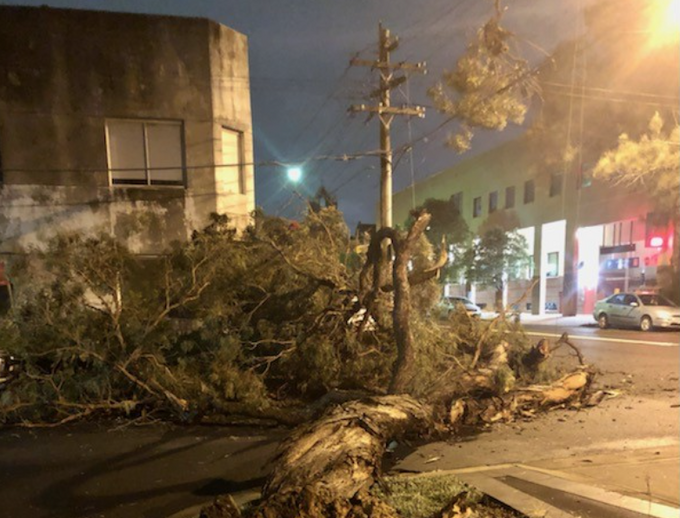- Home Home
-
Residents
Residents
- Waste & recycling Bins, clean-ups and disposing of tricky household items
- Parking Permits, car parks, maps and safety
- Your trees, plants & garden Tree care and maintenance on private property
- Neighbourhood issues Graffiti management, safety, noise and disturbance, aba...
- Pets Dog and cat ownership, lost animals and off-leash parks
- Precinct committees Your local connection to Council
- Waverley LGA Maps Maps of the environment, planning zones and more
- Payments Rates, online certificates and information on paying fi...
-
Community
Community
- Over 55s Services and programs for people over 55
- Children, youth & family services Child care, youth programs, kids activities and events,...
- Cultural diversity Cultural diversity policy, services including interpret...
- Disability inclusion Services and support for people with a disability
- Housing & homelessness Affordable Housing Program, homelessness and support
- Volunteering & Neighbourhood Projects Connecting locals with community projects
- Awards & Grants Apply for a community grant, financial support for comm...
- Community Profile Waverley Demographic Profile and Social Atlas
-
Business
Business
- Resources for Business Events, grants and support
- Regulations & permits Information on regulations, permits and licences for bu...
- Sustainable business Waverley Council encourages businesses to reduce waste,...
- Commercial waste & recycling services Tailored waste services for business
- Procurement Submitting tenders & expressions of interest to Council
- Innovation Roadmap 2025 to support business
- Tourism Home to Australia's most famous beach.
- Sponsorship Support local events
-
Recreation
Recreation
- Events Find out what’s on in your area. This is your guide to ...
- Places of interest Places of interest in Waverley, including local walks
- Visitors Information for visitors to the Waverley area, getting ...
- Beaches & coast Information on our beaches and coastline, Bondi, Tamara...
- Parks Parks and open spaces around Waverley, playgrounds, use...
- Arts & culture Arts programs, Artist in Residence, Waverley Art Prize,...
- Sports fields & outdoor court Sports venues and facilities, use of public open space
- Venue hire Information on Council owned and managed venues for hir...
-
Environment
Environment
- Making sustainability ‘second nature’ Join local community activities and events
- Public tree management Street Tree Masterplan and planting zones
- Networks & Support Find resources, programs and networks supporting enviro...
- Water & coast Water conservation and quality, our coastline, projects
- Bushland & wildlife Natural landscape of Waverley, bushland management, nat...
- Sustainable transport Public transport, cycling, transport projects and polic...
- Responding to Climate Change & Energy Emissions Emissions, resilience and circular economy
-
Planning & Development
Planning & Development
- Development Applications The DA process, key documents & community consultation
- DA Tracking Tool Search a Development Application by number or date
- Application forms & certificates Includes Construction and Occupation Certificates
- Waverley Local Planning Panel (WLPP) DA determination panel
- Compliance & regulations Including fire safety, waste & environmental health
- Heritage & design Conservation Areas, Design Excellence and Awards
- Strategic Urban Planning Urban and Environment Strategies, Planning Proposals
- Major projects Council-delivered building, streets and parks
-
Council
Council
- Organisation structure Information on how Council delivers services, organisat...
- Mayor & councillors Your Mayor, Councillors, wards and contact details
- Council & committee meetings Dates, agendas and minutes of meetings of Council
- Advisory committees Advisory Committees of Council
- Policies, procedures & plans Key operational and strategic plans of Council, reports
- Jobs Careers, current vacancies, working for Waverley Counci...
- Access to information Gaining access to publicly available information, acces...
- Payments Rates, online certificates and information on paying fi...
- Home
- >
- News & Media
- >
- Media Releases
- >
- Wild weather continues to impact the NSW east coast
Wild weather continues to impact the NSW east coast
08 March 2022 | Media Release
8 March 2022
Waverley Council is urging people to stay safe as wild weather continues to impact the NSW east coast.
The Bureau of Meteorology has issued a hazardous surf warning for the Sydney, Hunter, Illawarra, Batemans and Eden coasts until at least midnight tomorrow, Wednesday 9 March.
Waverley Council’s Manager of Lifeguard Services, Matt du Plessis, said large and powerful surf conditions are expected to be hazardous for coastal activities such as rock fishing, swimming and surfing.
“I implore people to observe these weather warning and always follow instructions from our Lifeguards, including during beach closures,” Mr du Plessis said.
“As a general precaution, swimming at ocean beaches should be avoided for up to one day after heavy rainfall or for as long as stormwater is present.
“If you witness an in-water emergency, please inform our Council Lifeguards, or if it is after hours, dial Triple Zero (000) and ask for the Police.”

Last week Council closed the Bondi to Bronte coastal walk between Notts Avenue and Tamarama due to the wild surf. Picture: Waverley Council.
The NSW Police Marine Area Command advises:
- People should consider staying out of the water and avoid walking near surf-exposed areas.
- Rock fishers should avoid coastal rock platforms exposed to the ocean and seek a safe location that is sheltered from the surf.
- Boaters planning to cross shallow water and ocean bars should consider changing or delaying their voyage.
- Boaters already on the water should carry the appropriate safety equipment and wear a lifejacket.
- Boaters should remember to log on with their local Marine Rescue radio base, via VHF Radio or the Marine Rescue APP, and consider their safety management plan.
- Residents are also encouraged to monitor the NSW Office of Environment and Heritage's Beachwatch bulletin for warnings about water pollution: https://www.environment.nsw.gov.au/beachmapp/Beaches/SydneyOceanBeaches
Sydney Water also publishes alerts here: https://www.sydneywater.com.au/water-the-environment/what-you-can-do/avoid-wastewater-overflows.html. Sydney Water manages sewage overflows in our area and has advised people to take care as pollution is possible at Sydney’s beaches. When sewage contamination may be present, Sydney Water is required to display signage. Residents can contact Sydney Water on 13 20 90 for further information.
Sydney can expect a windy day today (and tomorrow) with heavy rainfalls of between 120 to 150 mm predicted and a top temperature of 23 degrees. The rain will ease tomorrow (Wednesday), with just 0 to 3 mms predicted, and temperatures between 18 to 25 degrees.

Council officers respond to a clean-up at the corner of Ebley and Lawson Street, Bondi Junction, last Wednesday.
Waverley Council is attending to clean-up and repairs as quickly as possible. The quickest way to report a problem is via the free Snap Send Solve app. The app helps easily identify issues that require attention. You can also make a request here.
In the past week, officers have attended to several trees down in the area including in Ebley St, Bondi Junction, Gould Street, Bondi and Bronte Road, Bronte.
In severe weather, the State Emergency Service advises:
- move vehicles under cover or away from trees
- secure or put away loose items around your house, yard and balcony
- keep at least 8 metres away from fallen power lines or objects that may be energised, such as fences
- trees that have been damaged by fire are likely to be more unstable and more likely to fall
- report fallen power lines to either Ausgrid (131 388), Endeavour Energy (131 003), Essential Energy (132 080) or Evoenergy (131 093) as shown on your power bill
- Don't drive, ride or walk through flood water
- keep clear of creeks and storm drains
- if you are trapped by flash flooding, seek refuge in the highest available place and ring 000 if you need rescue
- be aware that run-off from rainfall in fire affected areas may behave differently and be more rapid. It may also contain debris such as ash, soil, trees and rocks
- after bushfires, heavy rain and the loss of foliage can make the ground soft and heavy, leading to a greater chance of landslides
- stay vigilant and monitor conditions. Note that the landscape may have changed following bushfires
- for emergency help in floods and storms, ring your local SES Unit on 132 500.
Media inquiries: media@waverley.nsw.gov.au or 0416 075 532.
